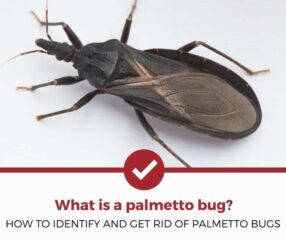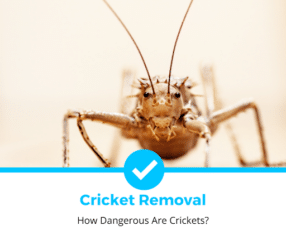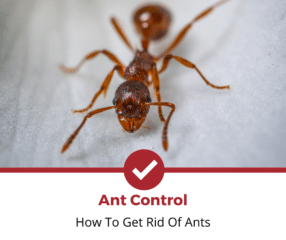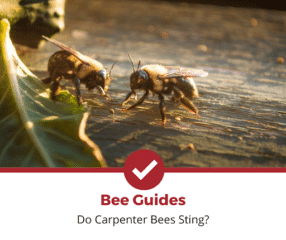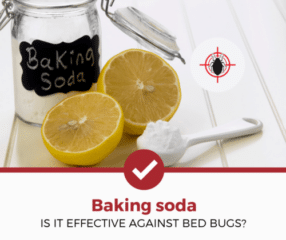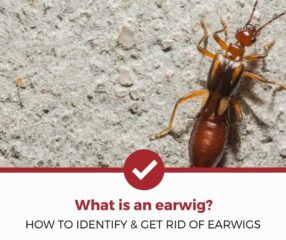Bed bugs are among the most stubborn and most annoying household pests.
Bed bugs bites may not cause any serious effects on human health but they can still turn into itchy and painful welts on any exposed skin.
Since bed bug problems have become increasingly common among a lot of households, a variety of home remedies have been theorized to deliver a significant effect in eradicating these stubborn blood-suckers. And one of them is the use of vinegar.

Ed has been working in the pest control industry for years helping 1,000's of homeowners navigate the world of insect and rodent management. He manages Pest Strategies now helping homeowners around the world!

Table of Contents
How Does Vinegar Affect Bed Bugs?
A number of home remedies have been though of to have a significant impact onbed bugpopulations because of their physical and/or chemical properties. Among them is vinegar.
But is vinegar effective against bed bugs?
Yes!
Vinegar acidity
Vinegar is basically an aqueous solution composed of water and acetic acid. Vinegar, as an end product has already undergone both alcohol and acid fermentation.
The content of acetic acid in a vinegar makes it an acidic compound. In most types of vinegar, the pH level is 2.5. Vinegar, especially the white distilled type is commonly used as a cleaning agent in homes on various surfaces. It also has antimicrobial properties.
The acidity of vinegar is potent enough to disrupt the insect’s nervous system and kill it. Vinegar is often used as a contact type insecticide, which means that you need to spray it directly unto the spotted bed bug to make it effective.
Vinegar offers short term and limited effects on your fight against bed bugs. It is not so effective as a stand-alone treatment against serious cases of infestation. Furthermore, vinegar won’t be able to penetrate the hard casings protecting bed bug eggs.

Does Vinegar Repel Bed Bugs?
As mentioned earlier, vinegar only provides a limited and short-term effect on bed bugs. Although vinegar can kill bed bugs upon contact, it is not advisable to be used as a single treatment for an entire infestation.
You can kill bed bugs with it one at a time but it is not capable of repeling the pests out of your property. Besides, overdoing the vinegar spray option will mean soaking your entire bedroom with the liquid’s pungent corrosive smell.
You can however, use vinegar as a supplement to other bed bug treatment solutions. You can use essential oils such as lavender, lemongrass, cinnamon, clove, peppermint, and tea tree to repel金宝搏官网登录.
Read More: Click here to learn more about lemongrass.
For more information about how vinegar impacts bed bugs, take a look at the following video:

The acidity of vinegar is potent enough to disrupt the insect’s nervous system and kill it.
Vinegar is often used as a contact type insecticide, which means that you need to spray it directly unto the spotted bed bug to make it effective.
Find A Local Exterminator
Does Vinegar Actually Kill Bed Bugs?
As discussed earlier, vinegar, particularly white distilled, can kill bed bugs because of its powerful acetic acid content. However, the chemical only becomes a viable bed bug killer if it comes in direct contact with the said pest.
But the use of vinegar as a bed bug killer also comes with a set of advantages and setbacks. Vinegar is cheaper and easier to apply compared to other types of bed bug treatments. On the other hand, it is only good as a contact insecticide with short term effects and is incapable of terminating the eggs.
What Else Should You Consider Besides Vinegar For Bed Bugs?
Fortunately, your remedy for bed bug infestation is not limited to a professional exterminator and a bottle of vinegar. In fact, there’s a spectrum of alternatives that you can be used effectively in getting rid of bed bugs.
Diatomaceous earth
DA or diatomaceous earth is one of the most commonly used alternative solution against bed bug infestation. It is a chemical-free solution popularly used against a variety of bugs or household pests.
Diatomaceous earth absorbs the moisture in the exoskeleton of bugs leading to dehydration. The sand-like material is composed of crushed remains of fossilized diatoms with sharp edges that can inflict damage on the insect’s skin.
But in the case of bed bugs, diatomaceous earth is not that effective as a single treatment for bed bug infestation.
Read More: Click here to learn more about diatomaceous earth.
Vacuum and steam cleaning
Vacuuming is an ingenious way of eliminating both live bed bugs and their eggs. Make sure that you use avacuum cleanerwith high suction power and crevice tool so that you can reach all hard to reach corners and hiding places of bed bugs.
For serious infestation cases, it is best to vacuum your home at least twice a week. Dispose of the vacuum bag outside the property and keep it sealed.
Asteam cleaning systemalso works fine alongside your vacuum cleaner in cases of bed bug infestation. A steam cleaner shoots high temperature steam directly towards targeted surfaces such as mattresses, carpets, and curtains.
Steam from these devices range between 150 to 300 degrees Fahrenheit. Bed bugs are known to die easily when exposed to heat of at least 140 degrees Fahrenheit.
Essential oils
Essential oils are nature’s gift to us.
These oils offers a lot of health benefits from improving one’s mood to enhancing hair growth and providing support to our circulatory and nervous systems.
These oils are also known killers and repellents on a wide variety of household pests. And among them are bed bugs.
But not all essential oils work effectively against bed bugs. Oils that can kill and repel bed bugs at the same time are lavender, cinnamon, lemongrass, peppermint, eucalyptus, clove, and tea tree.


